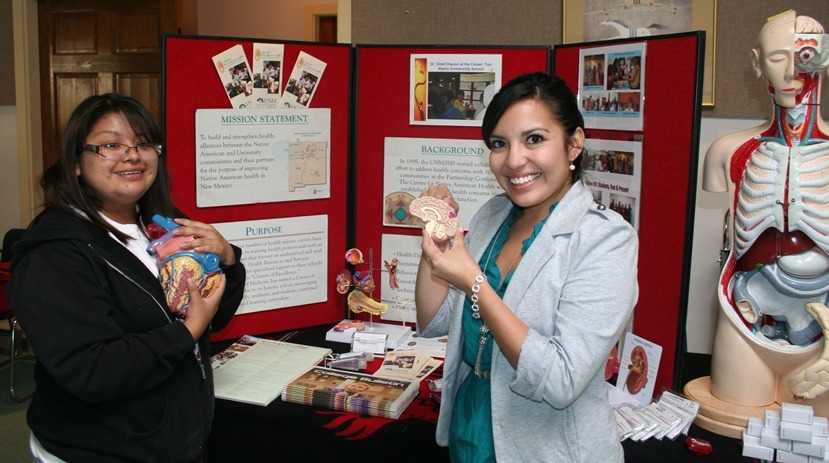 Looking for online information resources related to Native American health? Here’s a list to get you started. Please also take a look at two previous Hitchhiker articles on general health information resources and resources for the Affordable Care Act.
Looking for online information resources related to Native American health? Here’s a list to get you started. Please also take a look at two previous Hitchhiker articles on general health information resources and resources for the Affordable Care Act.
Let’s start at the US National Library of Medicine’s site for American Indian Health. The site is arranged in four areas: Health Topics, People and Traditions, Programs and Services, and Research and Data. Also of note, the Native Voices iPad app: “The app presents video interviews with tribal elders, healers and other prominent people who practice traditional medicine, Western medicine or a combination of both.” This is a good starting point. The site is clear and easy to navigate.
The Federal Indian Health Service provides information about its programs and procedures as well as general health topics from this site:
And you can access their statistical data and reports from here:
The National Indian Health Board is “a non-profit organization, provides a variety of services to tribes, Area Health Boards, Tribal organizations, federal agencies, and private foundations.” At their site you will find good information related to advocacy, funding, and legislation.
My favorite landing point here is Indian Health 101:
http://www.nihb.org/tribal_resources/indian_health_101.php
They also offer a very convenient link to download the list of federally recognized tribes:
http://www.nihb.org/tribal_resources/federally_recognized_tribes.php
The National Council of Urban Indian Health “is a 501(c)(3) organization representing the health care interests of American Indians and Alaska Natives living in urban settings.” The Policy blog will help you with many current issues in Native American health, and the Research sections will get you to useful data.
The Research area includes a link to their Knowledge Resources Center site, which has great info on Legislation and Policy, Research, Best Practices, and more:
Their Knowledge Resources Center includes a good factsheet on Urban Indian Myths and Realities:
http://krc.ncuih.org/Myths_Factsheet
Did you know Johns Hopkins University‘s Bloomberg School of Public Health has a Center for American Indian Health? Here’s the main site:
http://www.jhsph.edu/research/centers-and-institutes/center-for-american-indian-health/index.html
Here’s the link to their research and programs:
http://www.jhsph.edu/research/centers-and-institutes/center-for-american-indian-health/Research_and_Programs/
Here’s a link to their publications list:
http://www.jhsph.edu/research/centers-and-institutes/center-for-american-indian-health/Resources/Center_Publications.html
Closer to home there are the considerable resources of UNM. Start at the Center for Native American Health here to learn about the Native Health Database:
http://hsc.unm.edu/community/cnah/nhd.shtml
Be sure to check out the Research Guides here:
http://hsc.unm.edu/community/cnah/researchdb.shtml
And don’t miss UNM’s Native American Health Information Services page, where you find links to the Native Health Database and many other helpful resources.
Last but not least, here’s one of my favorite discoveries from this search: Pimatisiwin, A Journal of Aboriginal and Indigenous Community Health, “a peer reviewed, web-based journal published twice each year by Native Counselling Services of Alberta, in partnership with Te Rau Matatini in New Zealand, Papa Ola Lokahi in Hawaii, and the International Indigenous Council for Healing Our Spirit Worldwide. The articles are multidisciplinary, and of interest to a wide range of readers, including both community and academic researchers. Our peer review process includes an academic and a community-based reviewer for each article.” Articles are freely available to all who are interested. The global context of the journal opens up interesting areas of research, and new perspectives.
http://www.pimatisiwin.com/online/
If you know of good resources we’ve missed, please share them so we can make this list better. Email your favorites to Reference@state.nm.us, or call 505-476-9702.
(Photo from the UNM Center for Native American Health website http://hsc.unm.edu/community/cnah/About_CNAH.shtml)
